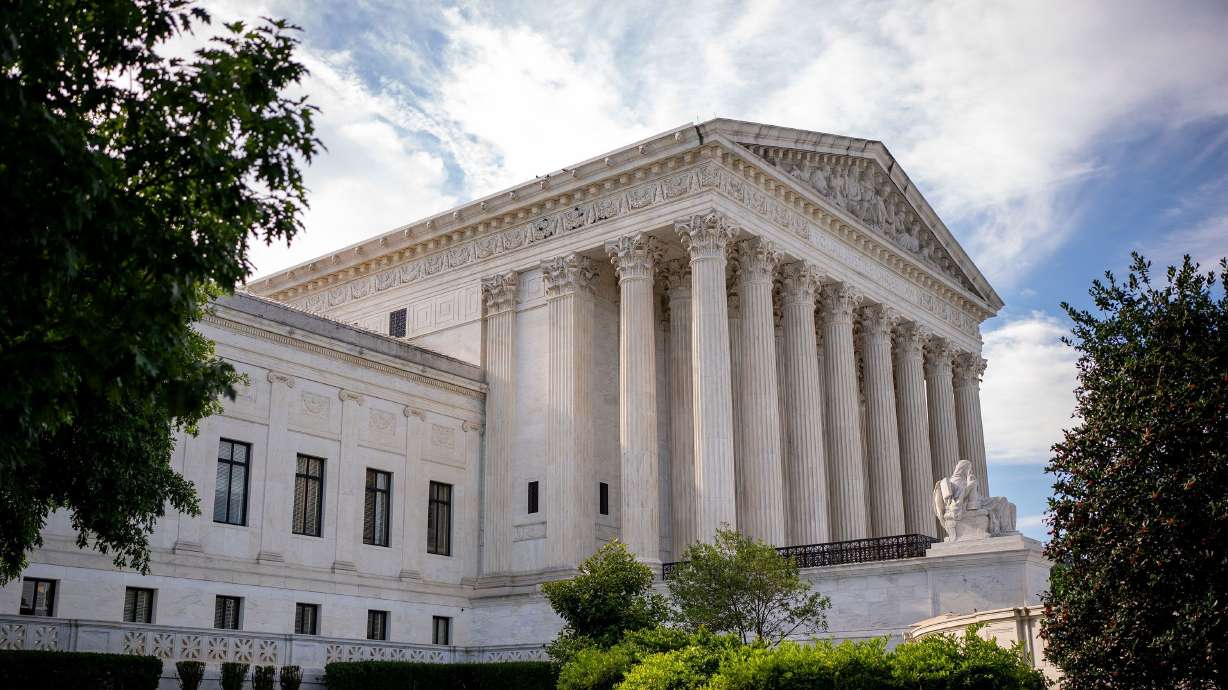Estimated read time: 3-4 minutes
This archived news story is available only for your personal, non-commercial use. Information in the story may be outdated or superseded by additional information. Reading or replaying the story in its archived form does not constitute a republication of the story.
WASHINGTON — West Virginia and Idaho asked the Supreme Court on Thursday to decide whether states can lawfully enforce bans on transgender students competing on sports teams consistent with their gender identity.
The two appeals from GOP-led states mark the first time the high court has been asked to decide the question in a substantive way amid a yearslong legal battle waged by transgender students and their advocates against a slew of such bans enacted in more than two dozen states.
The justices have already said they will decide a separate case concerning state efforts to ban transgender-related treatment for minors, but West Virginia and Idaho said that the court's eventual decision in that matter "will not resolve" the issue at the center of their cases.
Lower courts have ruled that the states' bans are unlawful, with a federal appeals court saying in April that West Virginia's ban violated a 13-year-old girl's rights under Title IX, a federal law that prohibits discrimination on the basis of sex at schools that receive federal aid.
That decision, West Virginia told the justices in its petition, "renders sex-separated sports an illusion."
"Muddled reasoning like the Fourth Circuit's will continue without this court's intervention, and 'a nationally uniform approach' will never be possible," West Virginia Attorney General Patrick Morrisey wrote in court papers.
The state went to the high court on an emergency basis in 2023 to get clearance to enforce the law while the legal challenge to it played out. But the justices, in an unsigned order, declined. Conservative Justices Clarence Thomas and Samuel Alito said they would have granted the request.
Signed into law by West Virginia Republican Gov. Jim Justice in 2021, the "Save Women's Sports Act" bans transgender women and girls from participating on public school sports teams consistent with their gender identity.
Idaho, which in 2020 became the first state to enact a sports ban, has also been on the losing end of a fight over its law. Lower courts said that that state's law likely violated the Constitution's Equal Protection Clause.
"So much of what women and girls have achieved for themselves over the course of several decades is being stolen from them — all under the guise of 'equality,'" Idaho Attorney General Raúl Labrador told the justices in court papers.
"The court should not wait any longer to correct these mistakes and to return the issue of protecting women's sports to the people's elected representatives," Labrador wrote.
Attorneys for the American Civil Liberties Union, which is representing the plaintiffs who challenged the state bans, pledged to continue fighting the bans should the high court agree to hear the cases.
"As the Fourth Circuit made abundantly clear, our client deserves the opportunity to participate in sports teams without discrimination," said Joshua Block, who is representing the student at the center of the West Virginia case. "We will make our position clear to the court and continue to defend the right of all students to play as who they are."
Chase Strangio, who has helped litigate the challenge to Idaho's law, said that state's ban "is designed to alienate and stigmatize transgender people, and we'll gladly make the case to the court that they should leave the Ninth Circuit's thorough opinion in place."








